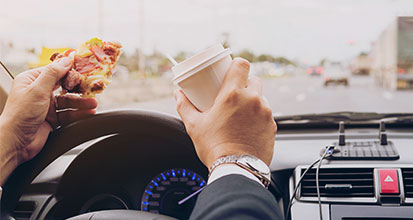
Drug driving can be defined as driving under the influence of an illegal drug. It even extends to driving with the presence of illicit drugs in your urine or saliva days after taking a drug. Section 49 of the Road Safety Act (the “Act”) makes it an offence to drive a vehicle while under the influence of drugs.
Drug offences are taken seriously by the law, and rightly so. Whenever there is potential harm to the drug taker or others at the hands of the offender, the law is there to punish and deter. However, nothing in life or law is black and white. Seeing a drug driving lawyer may be a good idea if you or someone you know has been charged with a drug driving offence.
What Types of Drugs Aren't Allowed?
In some situations, you may be found guilty of drug driving for taking medicines prescribed by a doctor. This is when the medication makes you unable to control your vehicle correctly.
In contrast, you will be guilty of an offense if there is any trace of an illegal drug in your system. The banned drugs typically include;
- Cannabis;
- Ecstasy;
- Speed.
If you are unsure whether a specific drug is prohibited by the Act, consult an experienced lawyer who will explain the process.
Mandatory Roadside Saliva Test
If a police officer suspects you’ve driven under the influence of drugs, they can ask you for a saliva test. A driver cannot refuse the saliva test, and the police can suspend your licence immediately if you refuse.
What Happens if You Test Positive?
If the saliva test is positive, you will then be asked to either;
- Go with the officer to a drug and alcohol bus for a more accurate test; or
- Return to the police station for a second test;
A blood or fluid sample is given to you for an independent test. A medical professional must do the test in the presence of a police officer.
The driver will then be issued an infringement notice for your alleged offence. This notice allows one to pay a fine or take the matter to court. The police may also summon the driver to appear in court, depending on the seriousness of the offence. The driver’s licence will also be suspended.
Fines and Penalties
If you’re charged with a drug driving offence, your driver's licence will be suspended for at least six months. The factors that are considered regarding the amount of the fine and suspension period are the following:
- The type of offence;
- Circumstances surrounding the crime (repeat offender or not).
You cannot apply for a work licence either, meaning you will not be allowed to drive even if it is part of your job.
Defences a Drug Driving Lawyer Can Raise for You
There are several defences you may have available to you.
- If proper procedures were not followed when taking saliva samples, the test results might not be allowed in court;
- If 3 hours or more have passed since you last drove your car, you can legally refuse to provide a saliva sample. Refusal will not result in a charge in this situation;
- If you plead guilty in court, you can ask the magistrate to record the outcome without a conviction. In such circumstances, it will mean that you keep your record clean.
There are many ways to approach a drug-driving matter. With experience and know-how, the best course of action can be chosen to help you out of a pickle.
How an Experienced Drug Driving Lawyer Can Assist
Drug driving charges are not uncommon. If you’re facing drug driving offence charges, consulting with an experienced drug driving lawyer is advisable. Considering the seriousness of this offence, you may need all the expert help you can get.


